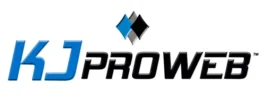The landscape of search engine optimization is undergoing a profound transformation with the advent of AI-powered search technologies. As Google AI Overviews, zero-click searches, Bing Copilot, and machine learning algorithms reshape user interactions, the importance of schema markup in organic SEO efforts has significantly increased.
Schema markup, once primarily an SEO tool, has evolved into a crucial component for success in AI-driven search environments. By providing structured data, schema markup enables search engines and AI systems to better understand and interpret web content, enhancing its visibility and relevance in search results.
In this new era, keyword rankings alone are no longer sufficient. The focus has shifted towards helping AI comprehend the intent and value of content.
Schema markup plays a vital role in building knowledge graphs, which are foundational for large language models (LLMs) powering AI search experiences.
- By implementing schema markup, websites can provide clear signals about their content’s purpose and relevance, increasing the likelihood of being featured in AI-generated responses and zero-click search results. As search engines become more sophisticated, structured data has become essential for accurate content interpretation and visibility.
- Schema markup allows for a more precise representation of information, enabling AI algorithms to extract insights and make predictions more effectively. This is particularly crucial as users increasingly find answers directly on search engine results pages, without clicking through to websites.
- By leveraging schema markup, businesses can optimize their content for AI-powered search, potentially improving their visibility in features like AI overviews, featured snippets, and other rich results.
This adaptation is key to maintaining relevance and capturing user attention in an evolving search landscape where machines are becoming primary consumers of content, tasked with understanding, interpreting, and presenting information to end users.
Citations:
[1] https://moz.com/learn/seo/schema-structured-data
[2] https://nogood.io/2024/08/05/google-ai-overview/
[3] https://www.cmswire.com/digital-experience/the-growing-importance-of-schemaorg-in-the-ai-era/
[4] https://www.searchenginejournal.com/technical-seo/schema/
[5] https://blog.photobiz.com/blog-post/looking-at-the-impact-of-zero-click-search-results
[6] https://www.reddit.com/r/seogrowth/comments/trgyoe/question_for_seo_pros_here_content_written_using/
[7] https://www.schemaapp.com/schema-markup/benefits-of-schema-markup/
[8] https://www.seerinteractive.com/insights/google-ai-overviews-performance-insights
[9] https://www.seoclarity.net/blog/pov-schema-17554/
[10] https://www.touchemedia.com/en/perspectives/google-ai-overviews-impact-on-the-search-experience-and-client-business/
[11] https://www.link-assistant.com/news/structured-data-for-seo.html
[12] https://zozimus.com/is-google-killing-search-the-rise-of-zero-click-searches/
[13] https://www.semrush.com/blog/schema-markup



